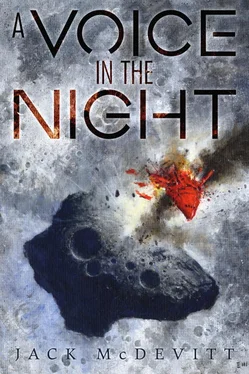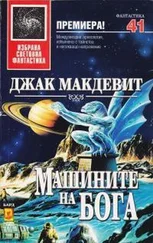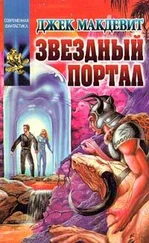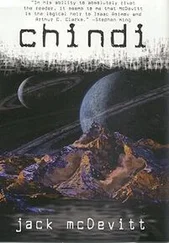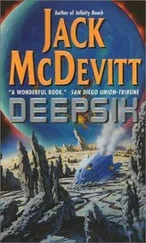They loved it. All except Frank Adams, who said it was okay. “A little over the top, though.” Frank never really approved of anything. He’d thought Our Town was slow.
In the spring, the Masque performed Light of the Moon to packed houses at the Dan Rodden Theater. It became the first show to leap directly from a collegiate stage to Broadway.
“Can he do anything else?” I asked Dennis. “Can he figure out how to go faster than light? Anything like that?”
He laughed. “He’s not programmed for science.”
“Has he written any other plays?”
“In fact, he has. JFK .”
“Is it as good?”
“Kennedy sweats out the 1962 Cuban missile crisis, knowing that he was the one who caused it when he put first-strike missiles into Italy and Turkey.”
“That sounds good,” I said. “Does Will get the byline this time?”
“No. And I’d be grateful if you’d just let that part of the story go away.”
“My students wondered what happened.”
“Lou, we had the biggest cosmological breakthrough of all time seven years ago. After decades, we finally got The Grand Unified Theory. You’ve heard of it, right?”
“Sure.”
“Do you know who figured it out?”
“Somebody named Winslow, wasn’t it?”
“His name is Wharton.”
“Oh, yes. Of course.”
“He won the Nobel.”
“Okay.”
“But you don’t know him.”
“Well, I’m not much into physics, Dennis. What’s this have to do with—?”
“Lou, I have a chance to be immortal. We have a new Stephen Hawking.”
“Oh,” I said. “Except the name is different.”
Dennis smiled. His eyes were focused on some faraway place.
OCULUS

The cockpit was illuminated by the instrument panel, and by the soft glow from Autumn’s rings. As we climbed toward orbit, George Blasingame sat quietly in the righthand seat, utterly absorbed by the knowledge of what we were carrying. The ultimate cargo. “You know, Kellie,” he said at last, “we already have the critical information about them. Even if we didn’t have the books, we have the window.” I knew he was talking about the oculus, the big circular window in the main room of the long-dead alien base below. From its mountaintop perch it looked out over the craggy moonscape, and provided a matchless view of the spectacle in the skies. But I had no idea what he meant.
He was, I think, about to explain what it must have been like when the lights went off. When everything went off. Whatever the problem was, I never saw it coming. It ripped through the electronics, killed the AI, took out the thrusters and the spike, shut down life support, blew communications, and knocked out almost every onboard system we had. Delta slowed and staggered. We were still going up, but we were losing momentum and if nothing changed we’d soon be on our way back down.
“What the hell was that?” George gripped the arms of his chair and looked wildly around at me.
We were twenty-some clicks above the surface.
“Kellie—” he howled, his expression suggesting that I was responsible.
“We’ll be fine,” I told him smoothly while I tried to get my systems back on line.
“The cargo,” he reminded me. Yes. Don’t lose the cargo. Whatever else happens.
We had four hundred and some odd books stashed in Delta’s storage, frozen in packs after centuries of being exposed to the void. Property of whoever had owned and lived on this moon. That was a long time ago, maybe when Charlemagne was running things. We’d brought them out of the house and placed them carefully in specially prepared containers. When we got them up to orbit, a scenario that was beginning to look problematical, George was going to thaw them out, scan them, and produce copies. The copies would eventually, it was hoped, be translated. He was going to scan them because George doubted we’d ever be able to get the pages apart without damaging the individual volumes. But he’d arranged to have one of the techs remove a navigational scanner from the hull of the Bromfield and adapt it for ultra-short-range work. He was especially proud of that bit of jury-rigging. I doubted it would work. Navigational scanners just don’t lend themselves to that kind of close-in effort. But what did I know?
The books constituted, the authorities were saying, the most valuable payload that had ever been moved in from offworld. For the first time we were going to get an insight into how other minds think. Who knew what the books might contain? The Academy director herself had overseen the operation, had taken a moment to remind me what I was carrying. All you have to do, Kellie, is get them to the Bromfield . So Kellie had become Columbus discovering the new world. Don’t be Carlyle landing on Mars. Don’t fly into a mountain.
Ha ha ha.
“Kellie, do something!” demanded George.
When the spike fails, the best thing, according to the manual, is to give it some time. Status lamps started to blink on. Backups were trying to activate. The fans squealed and a cool draft whispered out of the air ducts. The thrusters came to life and gave us a kick. I rotated them down so they could supply a bit more push.
That helped. But we still didn’t have enough to reach orbit. George’s eyes got big and round.
Fortunately, we hadn’t lost hull integrity. But the spike showed zero lift. The thrusters would never be enough to keep us from getting smeared across the landscape. And anyhow I’d exhaust the fuel if I had to keep burning it at its current rate. We needed the spike. I tried to reactivate it. The needles quivered, settled back to nil. I tried again. “We might have a problem,” I said.
Let me dispel any preconceptions at this point by mentioning that I’d known George Blasingame almost five years. He was no coward. I’ve seen him face down bureaucratic bullies, and I watched him go into a temple on Quraqua during a major earthquake to salvage a couple of pots. So when he started looking terrified I knew what the problem was.
“The books,” he said.
“I’m doing everything I can, George.”
“I don’t believe this. I’ve been riding these damned things for twenty years. And today of all days—.” He said it as if having any of the earlier landers go down with him in it would have been a small matter.
I told him to turn on his e-suit and grab his air tanks. I activated my own and shut down everything except the thrusters and the controls. Then I tried the spike again. The needles jumped, took hold, and climbed a bit. Some of our weight drained away. I got it up to about thirty percent. Not good. Not nearly enough. But it would buy time.
It looked as if we would get around the moon a couple of times before we hit a mountain.
I kept trying to raise the Bromfield while George urged me on. “Tell them we need help,” he said, as though I hadn’t noticed we had a problem. After a couple of minutes, we got a burst of static. And then Jimmy Amir’s voice. Jimmy was one of the technicians on the Bromfield . “—You okay?” he said. “Kellie, please answer up.”
“I hear you, Jimmy. We’ve got an emergency here.” I tried to sound as if I were reporting a plumbing problem. “Spike’s at thirty percent.”
Читать дальше
